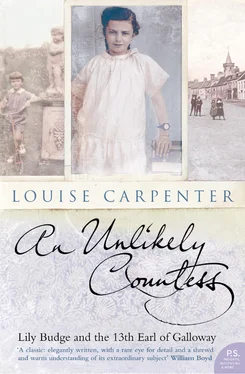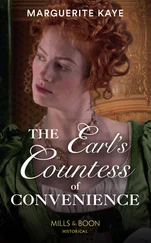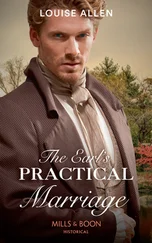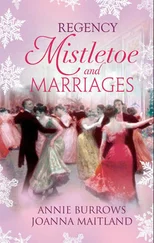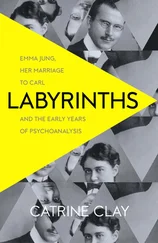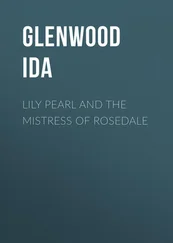‘On Tuesday 12th December before dark, I had my last appointment with Dr Wilson on psychological matters,’ Randolph writes of his last week at Harrow. These last days were ‘all eaten up in the misery of unpopularity and mocking, humiliating ridicule’, but tinged with not an ounce of regret. Randolph tried to keep his departure a secret, but it somehow got out and the boys began taunting him that it was because he was stupid. At Christmas, he left, weighing 5st 11lb and three-quarters, bound for home.
Back at Cumloden his failings became increasingly domestic. The day after he arrived Lady Galloway gave him a talk, but it was to no avail. He showed himself up in the dining room and was considered ‘rude, discourteous and impolite’. On another occasion, he attempted to sweep some crumbs off the table using the floor broom. ‘In a gentleman’s house,’ Lord Galloway said, ‘one does not use the dirty brushes of servants on one’s dinner table.’
Randolph says today that everything his family did, every decision they made regarding his future, was always in the hope that it would bring about some kind of change in his personality. It is impossible to know whether that frightened, weak little boy at Harrow forgave them for this or indeed whether, at this stage, there was anything to forgive. How many parents of their generation and class would not have wanted to mould their heir for future responsibilities? Was their treatment of him simply a display of disciplined, responsible, illiberal parenting? That Lord and Lady Galloway came to rely on a string of expensive London psychiatrists shows how desperate they were becoming. There can be no doubt that Randolph’s difficulties were as hard for them to bear as for Randolph. But their desperation would eventually lead them to make a decision with far more destructive consequences than a pair of lost eyebrows.
For now, fresh hope was invested in the influence of Shane and Madelaine Chichester. As planned, on 9 February 1945, Randolph left Scotland for Farnham Station and life at The Rough. Ten days later, Shane Chichester delivered his first homily: ‘[we] discussed my psychological situation, concerning the unnecessary phobias and complexes which had bugged me. I then had a low opinion of myself yet I was too proud and conceited to accept any criticism. Concentration, that of mine was another thing which worried Shane Randolph Chichester, and when people asked me questions I too often remained silent.’
At the beginning of March Shane gave Randolph a prompt card on which he had written his pearls of wisdom:
1. There are no reasons for fear
2. Happy days are coming
3. The truth, the whole truth and nothing but the truth
4. Possunt quia posse videnta [ sic ] – They can because they think they can
5. I shall pause and think before answering questions, then answer frankly
6. I can do all the things through Christ who strengtheneth me. Get into the stride of saying I can.
While Shane continued in his subtle and kindly efforts to correct Randolph’s personality, a specialist in psychology and psychiatry began visiting the house. Poor Cousin Shane was continually tried: ‘I entered the dining-room to pull down my brows at Shane … who then told me that he did not want to see a dark frown but a nice bright smile on my ugly face. I continued both to under and to overestimate myself.’
On V-E Day, 8 May, which Randolph describes as ‘a day of magic’, he was still at The Rough. Bolstered by the news, he moved his bed so he could lie on a platform outside his bedroom window and look up at the stars. By that August, when war ended with Japan, peace was finally restored to Britain. If only Randolph’s life could have been as hopeful. Two months after Britain’s victory he left The Rough accompanied by Lord and Lady Galloway. They were headed back to Scotland via London. Randolph was to spend a few days ‘with family and psycho-annalists’, a slip of the pen that reminds us how much Randolph’s future medical treatment would reveal about the annals of psychiatry.
‘By the end of the war I … had lost my husband, not in the horrors of war but to another woman in the Forces,’ wrote Lily of peacetime. Her marriage to Jock, having limped through the war years, now gave up the fight. Jock eventually left her for his mistress. Bad luck had also struck Rose. Two years after Lily gave birth to Brebner, Rose, at the age of twenty, gave birth to a baby girl called Ann, an event shortly followed by the disappearance of her husband. She married again, only to find that her new husband liked to drink. She had produced two more children (his), and the family was living in near squalor in a flat by the docks in Leith, then one of the most dangerous and run-down areas of Edinburgh. Only Etta, harbouring no ambitions to leave Duns or escape her life of domestic service, gave Sis any hope. Out of the blue she announced her intention to marry a quiet and gentle shepherd, employed on a nearby farm called Blackerston. Following the wedding, she joined him in his quarters, a wing of The Retreat, a large, round hunting lodge and, just when Sis and Lily had ruled out the possibility of Etta producing a family of her own, in 1947 she announced that, at the age of thirty-seven, she was pregnant. Nine months later she delivered a girl, also called Anne. (If there was a compensation for Etta’s comparatively uneventful existence in Duns it was that she remained married to the same man until she went to her grave.)
Lily’s single status sustained the Duns gossips, not least because another woman was involved. But Lily shrugged off the talk. Her godchild, May Millar (no relation but the daughter of Sis’s friend), then an impressionable child at Duns Primary, remembers being struck by how her godmother seemed wholly indifferent to what people were saying behind her back. She thought that this was either because Lily would not have wasted her energy on the opinions of those who did not know her, or because fresh problems had presented themselves on Jock’s departure. Money worries loomed and they consumed Lily’s waking hours. She did not expect, nor did she receive, any financial help from Jock. This left her with the sole responsibility of bringing up the boys, added to which was the worry over Andrew’s health (he had contracted scarlet fever). Sis and Papa were ‘wonderful’, Lily later recalled – ‘the only financial support I had was from them’ – but their donations could only stretch so far and it became apparent that Lily would need to find a full-time job.
Lily later wrote, ‘with a sad heart I made my way to the city’, but it must be stressed that once again her sadness was not at leaving Duns – after all, it held nothing for her any more, if it ever had – it was much more to do with Sis’s insistence that Andrew stay behind. His ear had been perforated and he was now partially deaf. He was also weak from the aftermath of his illness. As Lily observed, ‘They were still young enough to look after him and give him the extra care he needed.’ It was a decision made with his best interests at heart, but the consequences were to reverberate for years. Andrew was seven and broken-hearted. His father, as he saw it, appeared not to love him – he once shooed him away from Gourlays Wynd as if he were a stray – and now he was being left with his grandmother, who terrified him to the point of making him mute. The child adored his mother and could hardly bear the thought of her disappearing off for a new life with Brebner. But Andrew was a soft, delicate child, prone to tears, and he quietly accepted the situation. Brebner, on the other hand, created a scene. He wanted nothing more than to stay behind with his friends. As a result each looked to the other as having secured the better deal and this jealousy and resentment forced them further apart. (It was to last well into their adult years, when slowly they discovered they liked and then loved each other very much.)
Читать дальше
